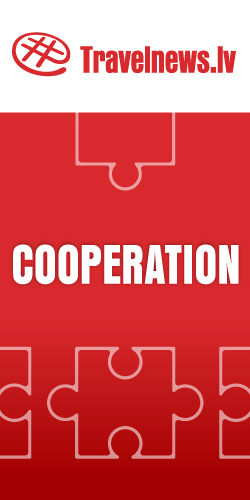Author: visitlithuania.net
Source: visitlithuania.net
“Lithuania is a safe country for tourists to visit,” as demonstrated by the studies of the World Economic Forum and the Institute for Economics and Peace. Such studies are becoming increasingly more relevant because, according to international organisations for tourism, the countries’ safety will remain the principal factor while choosing to travel and will prevail over the price in 2018.
“It is a safe country both for local and foreign tourists. This is a highly significant indicator for Lithuania, and we have valid reasons to be proud as we live here and create a safe and reliable country for others – in this case, tourists from abroad. As the World Economic Forum published countries’ competitiveness indices last year, Lithuania was granted the top rating – the first place in terms of the sub-index of the absence of the terrorism threat in the country. We are also going to highlight this advantage of our country in tourism marketing since tourists inquire more and more often about the safety of a country they intend to visit,” maintains Indrė Trakimaitė – Šeškuvienė, Acting Director of the Department of Tourism.
Reklāma
As announced by the Institute for Economics and Peace, which examines the impact of safety on the countries’ economy and has its offices in Sydney (Australia), New York (the USA) and the Hague (the Netherlands), Lithuania is numbered among those countries of the world where the index of terrorism equals 0. The list also includes Latvia, Norway, Portugal, Romania, Singapore, Slovenia and other countries (currently, the risk of terrorist attacks is highest in Iraq (with the maximum index of terrorism), Afghanistan, Nigeria, Syria, Pakistan, etc.).
“Safety of travel and tourists (from the point of view of health, life and assets) is one of the more important criteria while choosing a travel destination. Tourism regions deemed unsafe and dangerous for tourists lose their attractiveness and popularity. Following the terrorist attacks of 11 September 2001 in the USA, we have witnessed a change in the issue of safety in the context of tourism. Prior to that, safety issues were a taboo in the tourism business, because it was believed that tourists might view discussions on safety negatively expecting to be in danger and thus ignore travel,” the meaning of the factor of safety for tourism is analysed by Dr. Assoc. Prof. Arvydas Survila, the author of the book Nepaprastųjų Situacijų Valdymas (Management of Emergency Situations).
To publish this article please contact BalticTravelnews.eu editorial board
 --------
--------


.jpg)
.jpg)


